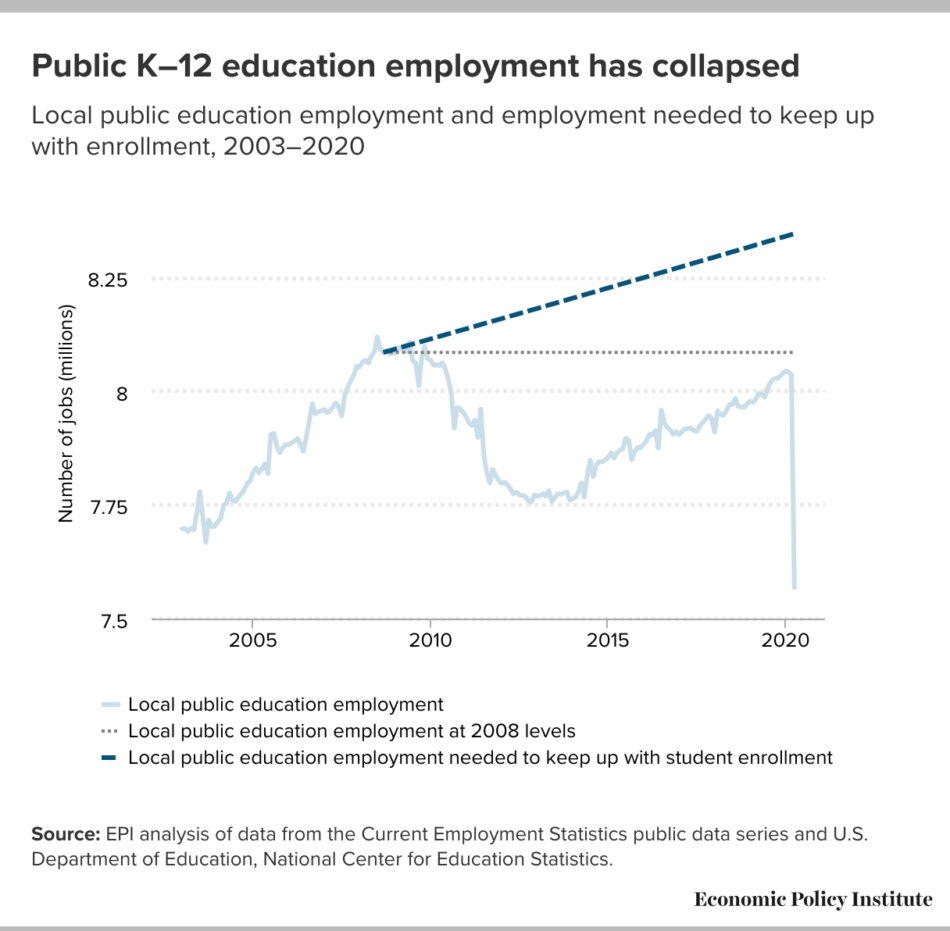Job Market Shock: TD's Recession Prediction And 100,000 Job Losses

Table of Contents
TD's Recession Prediction: A Deeper Dive
TD's pessimistic forecast isn't based on mere speculation; it's rooted in a complex interplay of economic indicators pointing towards a challenging period for the Canadian economy.
The Economic Factors Driving TD's Forecast
Several key economic factors are fueling TD's recessionary prediction:
- Persistent Inflation: Soaring inflation continues to erode purchasing power, impacting consumer spending and business investment. The Bank of Canada's aggressive interest rate hikes, while intended to curb inflation, also risk triggering a recession.
- Weakening Consumer Confidence: As prices rise and interest rates climb, consumer confidence is plummeting. This translates to reduced spending, a major driver of economic growth. Recent surveys indicate a significant decline in consumer optimism.
- Housing Market Downturn: The once-booming Canadian housing market is showing signs of significant cooling. Rising interest rates have made mortgages more expensive, leading to decreased demand and potentially a sharp correction in housing prices. This downturn has a ripple effect across related industries.
- Global Economic Uncertainty: The global economy is grappling with numerous challenges, including geopolitical instability, supply chain disruptions, and the ongoing war in Ukraine. These global headwinds add to the pressure on the Canadian economy.
TD's Recession Timeline and Severity
TD's prediction suggests a recession could begin as early as late 2023 and last into 2024. The severity of the downturn remains uncertain, but their projections point towards a notable contraction in economic activity, potentially leading to significant job losses. TD's methodology involves analyzing a range of economic data, including consumer spending, business investment, and global economic trends. While a recession is predicted, TD also acknowledges the possibility of mitigating factors, such as a quicker-than-expected slowdown in inflation, which could lessen the impact.
100,000 Job Losses: Sectors Most Affected
The projected 100,000 job losses won't be evenly distributed across the Canadian economy. Certain sectors are far more vulnerable than others.
Industries Facing the Biggest Impacts
Several sectors are expected to bear the brunt of the job losses:
- Construction: The cooling housing market will inevitably impact the construction industry, leading to reduced demand for skilled tradespeople and construction workers.
- Technology: The tech sector, particularly in areas reliant on venture capital funding, is already experiencing layoffs as investors become more cautious. This trend is expected to continue.
- Retail: As consumer spending falls, retail businesses will likely reduce staff to manage shrinking revenues and rising costs.
- Finance: While the financial sector itself may not experience mass layoffs, supporting industries could be affected by the decreased lending activity.
Regional Variations in Job Losses
The impact of the potential "Job Market Shock" won't be uniform across Canada. Provinces heavily reliant on specific vulnerable sectors, such as Alberta's energy sector or Ontario's manufacturing and construction, might experience more concentrated job losses. Regional economic disparities are likely to widen as a result of this uneven impact.
Preparing for a Potential Job Market Shock
Proactive planning is crucial for individuals and businesses alike to navigate the potential economic challenges ahead.
Strategies for Individuals
To prepare for potential job losses:
- Update your resume and LinkedIn profile: Ensure your skills and experience are prominently displayed, highlighting your accomplishments and adaptability.
- Network strategically: Strengthen your professional network by attending industry events, connecting with former colleagues, and actively engaging on platforms like LinkedIn.
- Develop new skills: Invest in upgrading your skills to make yourself more competitive in the job market. Consider online courses or professional development programs.
- Manage your personal finances: Create a budget, reduce unnecessary spending, and build an emergency fund to weather potential financial hardship.
Government and Corporate Responses
Government intervention and corporate strategies will play a critical role in mitigating the impact of the recession:
- Government Support Programs: The Canadian government may introduce or expand existing employment insurance benefits and job training programs.
- Corporate Strategies: Companies might implement hiring freezes, reduce employee hours, or offer early retirement packages to minimize layoffs. Some might invest in employee retraining and upskilling to retain talent.
Conclusion
TD's prediction of a significant recession and potential 100,000 job losses presents a serious challenge to the Canadian economy. Understanding this looming "Job Market Shock" is crucial. The sectors most at risk are those sensitive to changes in consumer spending and investment, including construction, technology, and retail. Individuals and businesses must take proactive steps to prepare for this potential downturn. Take control of your future by reviewing your resume, networking with professionals, exploring resources to navigate this economic downturn, and ensuring your personal finances are well-managed. Don't wait for the "Job Market Shock" – prepare now!

Featured Posts
-
 Tyrese Haliburtons Impressive Knicks Game Nba Reactions
May 28, 2025
Tyrese Haliburtons Impressive Knicks Game Nba Reactions
May 28, 2025 -
 Vehicle Subsystem Issue Causes Blue Origin Launch Cancellation
May 28, 2025
Vehicle Subsystem Issue Causes Blue Origin Launch Cancellation
May 28, 2025 -
 Arsenal Transfer News Top Striker Chooses Gunners Over Tottenhams 58m Offer
May 28, 2025
Arsenal Transfer News Top Striker Chooses Gunners Over Tottenhams 58m Offer
May 28, 2025 -
 Khyu Dzhakman Zamesen V Skandala Mezhdu Bleyk Layvli I Dzhstin Baldoni
May 28, 2025
Khyu Dzhakman Zamesen V Skandala Mezhdu Bleyk Layvli I Dzhstin Baldoni
May 28, 2025 -
 Sir Rod Stewart To Receive Prestigious Lifetime Achievement Award
May 28, 2025
Sir Rod Stewart To Receive Prestigious Lifetime Achievement Award
May 28, 2025
Latest Posts
-
 Elon Musks Daughters New Career A Closer Look
May 30, 2025
Elon Musks Daughters New Career A Closer Look
May 30, 2025 -
 From Silicon Valley To Runway Vivian Musks Journey
May 30, 2025
From Silicon Valley To Runway Vivian Musks Journey
May 30, 2025 -
 Analysis Of Vivian Jenna Wilsons Modeling Debut And Family Life
May 30, 2025
Analysis Of Vivian Jenna Wilsons Modeling Debut And Family Life
May 30, 2025 -
 A Public Feud Bill Gates Serious Allegations Against Elon Musk And The Response
May 30, 2025
A Public Feud Bill Gates Serious Allegations Against Elon Musk And The Response
May 30, 2025 -
 The Musk Gates Dispute Accusations Of Negligence And Child Mortality
May 30, 2025
The Musk Gates Dispute Accusations Of Negligence And Child Mortality
May 30, 2025
